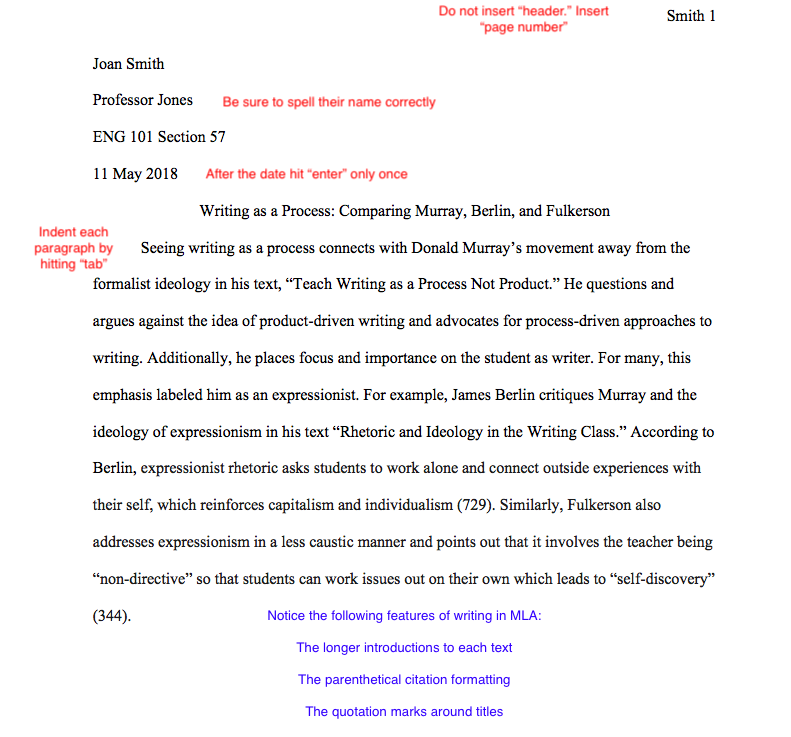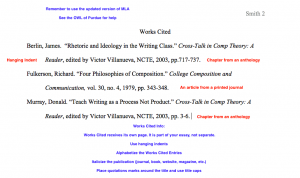Appendix A: Documentation Styles (MLA & APA)
48 Formatting Your Paper in MLA
Melanie Gagich
Understanding Documentation Styles
There are many types of documentation styles; however, the two you will likely use most consistently in college writing classes are MLA and APA. You might think that it doesn’t matter which one you choose… but it does. A documentation style dictates how a manuscript is formatted, the way you cite outside sources inside the text (signal phrases and parenthetical citations), the way you cite bibliographic information (Works Cited or References), and the style of writing that you use. Below you will find beginning information about MLA style. To get more information about APA style visit the Purdue OWL website.
Modern Language Association (MLA)
The Modern Language Association began in 1883 as a “discussion and advocacy group for the study of literature and modern languages” (“Modern Language Association”). The style was created by this group in 1951 in order to provide scholars in this field with a set of shared writing and citation guidelines. MLA is mostly used in the humanities, such as English and modern languages.
With MLA style, you should always use Times New Roman 12-point font (unless otherwise directed by your instructor) and one-inch margins. The entire manuscript should also be double-spaced. Below is an annotated example of other important features you should consider and include in your MLA manuscripts:


For more help with MLA please visit the OWL of Purdue’s MLA Guide.
Media Attributions
- MLA Sample pdf 1
- MLA Revised Annotated Sample OER

